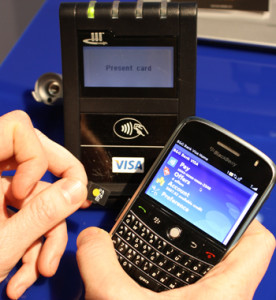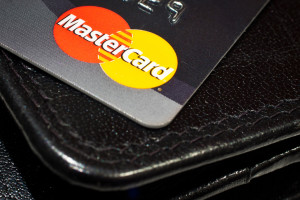April 15th, 2014 by Elma Jane
Amsterdam, Netherlands-based Cardis has been piloting its technology in Europe with Raiffeisen Bank in Austria and Sberbank in Russia. They are now focused on the U.S., as this is the fastest growing mobile payments market in the world, where there’s a huge opportunity. Integration of technology with a large U.S. processor and with a major U.S. retail brand, which will be launching a mobile site and mobile app using Cardis solution.
Cardis International is planning an April launch in the U.S. for its technology, which enables merchants to accept low-value contactless or mobile payments without incurring high processing charges. Cardis is able to bring down the processing cost of low-value payments, the company said, by aggregating multiple transactions into a single payment.
The problem
Contactless card and NFC-based mobile payments are typically for low amounts, and yet still use a card processing infrastructure that was designed 40 years ago when the average credit card transaction was $100.
Traditional card processing systems require each transaction to be individually processed through the payment system, including authorization, clearing and settlement. The resulting variable costs of processing each transaction are independent of the transaction amount and too high for low-value payments, particularly in low-margin industries such as quick-service restaurants. QSR restaurants often have a 3 percent profit margin, yet, for low-value contactless payments, the processing cost could be as high as 6-7 percent of the transaction value.
Mobile and contactless cards offer consumers a convenient form factor. But they don’t solve the problem that low-value card payments are very expensive for merchants.
As an ever-increasing percentage of transactions have become cashless, card processing fees have become a significant cost. Costs that are based on the number of transactions, rather than their value. With average per person expenditures of $5 or under, feels each swipe fee much more than a business where customers spend $50 or more. But not accepting credit/debit cards for low-value transactions isn’t an option as many of customers don’t carry cash anymore.
Aggregation
Cardis’ solution is to act as an aggregator of low-value payments, sending a single batched transaction through to a processor instead of multiple low-value transactions. As there is no per transaction processing of individual low-value purchases, the cost-per-transaction is significantly reduced.
Cardis provides its technology as a software plug-in to payment service providers for contact-based and contactless card payments, mobile wallet transactions and NFC payments.
There are two models. For card payments, it will aggregate multiple purchases by an individual cardholder at a single merchant on a post-paid basis up to a specific amount, for example $20. To guarantee payment to the merchant, since the aggregated transaction is processed at a later date, it will pre-authorize an amount, for example $15, the first time the customer makes a purchase at that merchant.
Alternatively, merchants can opt for Cardis’ prepaid system. This involves the consumer setting up a prepaid account hosted by Cardis’ sponsoring bank that is topped up via ACH (automated clearing house) transfers. Using the Cardis prepaid account on a smartphone provides the digital equivalent to cash.
With its post-paid solution, merchants will save 30-50 percent per transaction compared to conventional card processing fees, while its prepaid solution saves merchants 80 percent per transaction. With the post-paid solution, it will only aggregate a customer’s purchases at a single specific merchant. But, as the prepaid solution aggregates the customer’s purchases across multiple merchants, this enables to offer a much lower processing fee to the merchant.
Cardis provides an audit trail enabling consumers to track individual transactions that are aggregated using its technology. Consumers don’t lose any of their card protection rights and guarantees by agreeing to let a merchant aggregate their payments through Cardis. They can always charge back any disputed transactions.
Cardis sees opportunities for digital content providers such as online music stores and games providers to use its aggregation technology. It can integrate solution with existing digital wallets.
Raiffeisen
In 2012, Austria’s Raiffeisen Bank launched a pilot of Cardis technology for NFC-based Visa V Pay debit card payments in partnership with Visa Europe. Raiffeisen’s MobileCard mobile payment product uses a secure element stored on an NFC-enabled MicroSD card inserted in a mobile phone. Although Cardis supports secure elements stored on SIM cards as well as on MicroSD cards and on the cloud, Raiffeisen opted for MicroSD cards, as this is an easier solution to implement.
Raiffeisen cardholders participating in the pilot use MobileCard on average three times a week, with an average transaction value of ($5.70). Merchants accepting MobileCard are seeing 40 percent to 70 percent lower merchant processing fees for an average transaction value of ($5.43) to ($13.60).
Spindle
In October 2013, Spindle, a U.S. mobile commerce company, signed an agreement with Multi-max, a manufacturer of vending machines for mid-size and small offices throughout North America, Europe and Asia. Spindle will integrate its MeNetwork mobile commerce technology into Multi-max’s line of K-Cup vending machines for rollout across the U.S.
The MeNetwork solution will incorporate all card-based payment acceptance services, as well as mobile marketing services. Spindle’s partner Cardis will provide low-value payment processing services for purchases at K-Cup vending machines.
Posted in Credit card Processing, Credit Card Security, Digital Wallet Privacy, e-commerce & m-commerce, Electronic Payments, Gift & Loyalty Card Processing, Internet Payment Gateway, Mobile Payments, Mobile Point of Sale, Near Field Communication, Payment Card Industry PCI Security, Smartphone, smartSD Cards, Visa MasterCard American Express Tagged with: accept, ach, aggregated, aggregation, aggregator, authorization, automated clearing house, average transaction, batched, card payments, card processing infrastructure, card processing systems, card-based payment acceptance, cardholders, clearing, contactless, contactless payments, cost-per-transaction, credit card transaction, debit card payments, Digital wallets, high processing charges, low-value payments, merchant aggregate, Merchant's, microSD, mobile app, mobile commerce, mobile payment, Mobile Payments, mobile site, mobile wallet transactions, nfc-based, payment service providers, pre-authorize, prepaid, processed, Processing, processing cost, processing fees, processor, settlement, smartphone, transactions, transfers
March 31st, 2014 by Elma Jane
A payment processor is a company often a third party appointed by a merchant to handle credit card transactions for merchant acquiring banks. They are usually broken down into two types: Back and Front-End.
Back-End Processors accept settlements from Front-End Processors and, via The Federal Reserve Bank, move the money from the issuing bank to the merchant bank.
Front-End Processors have connections to various card associations and supply authorization and settlement services to the merchant banks’ merchants. In an operation that will usually take a few seconds, the payment processor will both check the details received by forwarding them to the respective card’s issuing bank or card association for verification, and also carry out a series of anti-fraud measures against the transaction.
Additional parameters, including the card’s country of issue and its previous payment history, are also used to gauge the probability of the transaction being approved.
Once the payment processor has received confirmation that the credit card details have been verified, the information will be relayed back via the payment gateway to the merchant, who will then complete the payment transaction. If verification is denied by the card association, the payment processor will relay the information to the merchant, who will then decline the transaction.
Modern Payment Processing
Due to the many regulatory requirements levied on businesses, the modern payment processor is usually partnered with merchants through a concept known as software-as-a-service (SaaS). SaaS payment processors offer a single, regulatory-compliant electronic portal that enables a merchant to scan checks “often called remote deposit capture or RDC”, process single and recurring credit card payments (without the merchant storing the card data at the merchant site), process single and recurring ACH and cash transactions, process remittances and Web payments. These cloud-based features occur regardless of origination through the payment processor’s integrated receivables management platform. This results in cost reductions, accelerated time-to-market, and improved transaction processing quality.
Payment Processing Network Architecture
Typical network architecture for modern online payment systems is a chain of service providers, each providing unique value to the payment transaction, and each adding cost to the transaction. Merchant>Point-of-sale SaaS> Aggregator >Credit Card Network> Bank. The merchant can be a brick-and-mortar outlet or an online outlet. The Point-of-sale (POS) SaaS provider is usually a smaller company that provides customer support to the merchant and is the receiver of the merchant’s transactions. The POS provider represents the Aggregator to merchants. The POS provider transaction volumes are small compared to the Aggregator transaction volumes. The POS provider does not handle enough traffic to warrant a direct connection to the major credit card networks. The merchant also does not handle enough traffic to warrant a direct connection to the Aggregator. In this way, scope and responsibilities are divided among the various business partners to easily manage the technical issues that arise.
Transaction Processing Quality
Electronic payments are highly susceptible to fraud and abuse. Liability to merchants for misuse of credit card data creates a huge expense on merchants, if the business were to attempt mitigation on their own. One way to lower this cost and liability exposure is to segment the transaction of the sale from the payment of the amount due. Some merchants have a requirement to collect money from a customer every month. SaaS Payment Processors relieve the responsibility of the management of recurring payments from the merchant and maintain safe and secure the payment information, passing back to the merchant a payment token. Merchants use this token to actually process a charge which makes the merchant system fully PCI-compliant. Some payment processors also specialize in high-risk processing for industries that are subject to frequent chargebacks, such as adult video distribution.
Posted in Best Practices for Merchants, Credit card Processing, Electronic Check Services, Electronic Payments, Internet Payment Gateway, Merchant Services Account, Payment Card Industry PCI Security, Point of Sale, Visa MasterCard American Express Tagged with: aggregator, aggregator transaction volumes, back end, card associations, card data, chargebacks, credit card transactions, electronic portal, front end, front-end processors, issuing bank, merchant, merchant bank, network architecture, online payment systems, payment gateway, payment processing, payment processor, payment transaction, pci-compliant, point of sale, POS, SAAS
October 14th, 2013 by Elma Jane
First what is a Merchant Account? It is a type of bank account that allows businesses to accept payments by payment cards, typically debit or credit cards. A merchant account is established under an agreement between an acceptor and a merchant acquiring bank for the settlement of payment card transactions. In some cases a payment processor, independent sales organization (ISO), or member service provider (MSP) is also a party to the merchant agreement. Whether a merchant enters into a merchant agreement directly with an acquiring bank or through an aggregator such as PayPal, the agreement contractually binds the merchant to obey the operating regulations established by the card associations.
Merchant Account comes in 2 Basic Types – Aggregated Accounts and Dedicated Accounts.
Aggregated Merchant Account – such as those provide by PayPal that use a single merchant account to provide credit card processing for an entire portfolio of companies.
Dedicated Merchant Account – are provisioned specifically for your business.
Each has its Advantages and Disadvantages.
4 Key Points to Consider when deciding which type is the most advantageous for your small business.
1. Creditworthiness: To obtain a dedicated credit card processing merchant account your business will need to go through comprehensive underwriting. If you’re in a difficult to underwrite industry or if your business is very new and if it has a less than stellar credit history then an aggregated merchant account is the best choice. You still need to provide information about your business, underwriting for aggregated accounts is typically far less rigorous than for dedicated merchant accounts.
2. Funds Control: With an aggregated merchant account, transaction proceeds go to the service provider and are then deposited to your bank account at the provider’s discretion. There are no industry standards or rules that govern how an aggregated merchant account provider handles or disburses your money. The provider makes the rules, and can change them at will, so if you choose an aggregated merchant pay very close attention to the contract terms and any changes made to them. With a dedicated merchant account, transaction proceeds, less processing fees, are deposited directly into your business account. While the merchant account provider can correct errors, react to potential fraud and debit your account for customer “chargeback” claims. This must all be done based on industry-standard credit card processing rules.
3. Neighborhood: With an aggregated account, you’ll have no idea about the other companies processing transactions. If a good number of them engage in fraudulent activity, it is possible that the service provider’s processing account will be terminated and even honorable businesses like yours will lose credit card processing ability. If you do go with an aggregated account, it is very important to make sure that your provider is large enough to absorb fraud generated by a few bad apples.
If you’re using a small provider, try to get a list of the other business using the service and check them out to see if you want to live in the same neighborhood. With a dedicated merchant account the only company processing credit card transactions through it will be yours. You are in full control of keeping the account in good standing.
4. Speed: Getting a dedicated merchant account can take time. While there are some providers automating the process and providing same-day decisions. A typical application will take 48 hours to approve and additional time to integrate into a POS or electronic payment processing environment. Signing up for a credit card processing under an aggregated account service provider can usually be done in minutes, and it often comes with an online system that can have you actively processing payment within the hour.
Offering your customers the option to pay with a credit card is a great way to enhance revenue for your small business. Customers want the points associated with rewards cards, and they want to manage their own cash flow by floating balances or financing their purchases. Allowing them to use credit cards accomplishes both. So, give the customers what they want. If you don’t accept credit cards yet, now is a great time to start. Having made that decision, the next step is to obtain a merchant account for credit card processing.
The actual credit card processing rates you’ll be charged are a critically important factor as well. But as with most things, you get what you pay for. So don’t choose a low rate without also considering how the provider you select will impact your overall business.
For Merchant Account Services Please call National Transaction at 888-996-2273 or visit our website www.nationaltransaction.com to know more about our services.
Posted in Credit card Processing, Merchant Services Account Tagged with: account, accounts, acquiring, aggregator, card, cards, chargeback, credit, debit, electronic, environment, fees, financing, fraud, ISO, merchant, msp, payment, PayPal, POS, Processing, provider, transaction, underwriting


